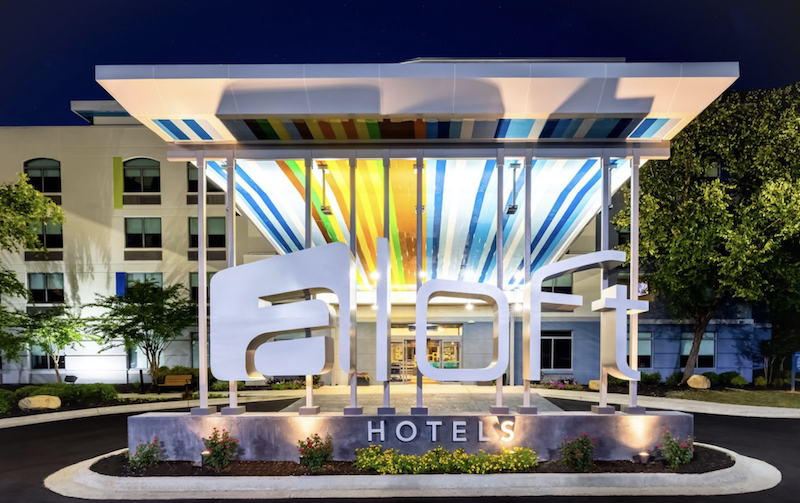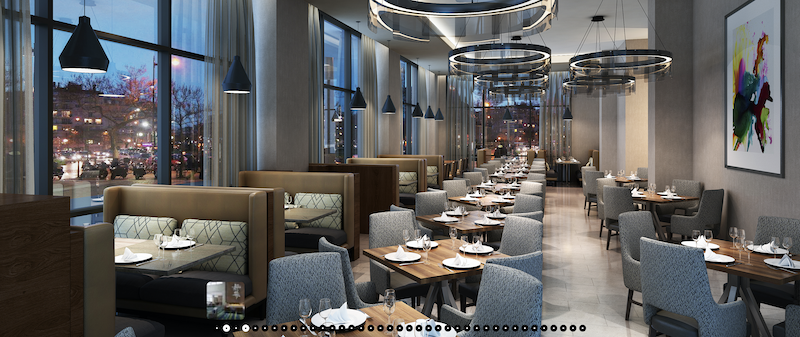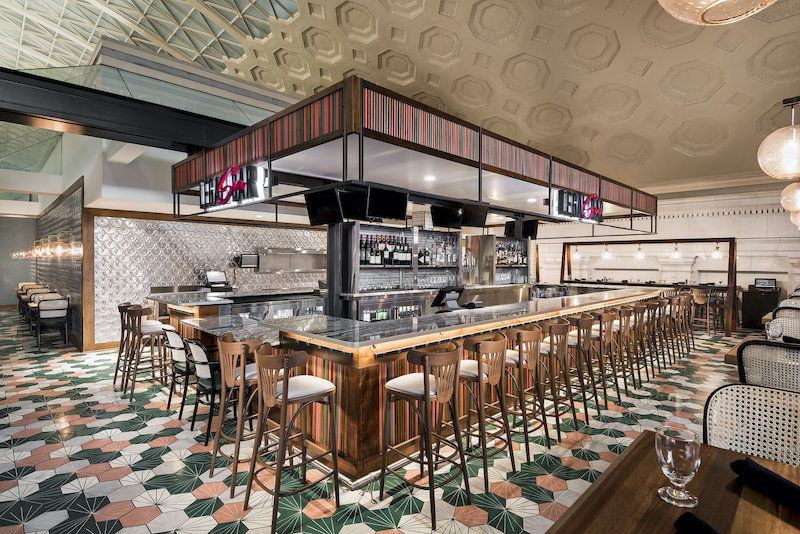Tens of thousands of restaurants and hotel rooms in the U.S. have been vacant as a result of the novel coronavirus. The U.S. Bureau of Labor Statistics estimates that the leisure and hospitality sector lost 7.7 million jobs in April alone, with restaurants taking most of that hit, and the sector’s unemployment rate soared to 39%.
Even in states like Georgia that reopened their economies earlier than most, customers have been reluctant to go to restaurants whose staffs are wearing masks, checking patrons’ temperatures, and using disposable placemats. The Texas Restaurant Association estimates that at least 12% of restaurants in the state had closed permanently due to the virus’s outbreak.
Getting customers to book a room and reserve a table again is going to take more than shuffling some furniture around. “We’re going to have to redesign the word ‘safe’ to help guests understand cleanliness,” says David Shove-Brown, Partner and Principal with //3877, a boutique design firm based in Washington D.C., with hospitality and restaurant design practices.
“As any business now, restaurants will need to convey what the brand, ownership, and staff are doing to ensure they are implementing even higher cleaning standards than before,” says Lesley Hughes Wyman, RID, ASID, IIDA, NEWH, Partner and Principal with MatchLine Design Group, a Dallas-based interior design firm whose specialties include hotels, casinos, and convention centers.

//3877 was the lead architect on the complete conversion of the 100-key Aloft Hotel in Columbia, S.C., which opened in the Summer of 2018 and included a new lobby. The firm believes that hotels will need to convince guests that they are staying a safe environment. Image: The Rohm Group
FLEXIBILITY AND STAFF TRAINING ARE KEYS TO REOPENING SUCCESSFULLY
Wyman sees flexibility as the key, “where options that allow varied gathering reconfigurations are paramount.” Griz Dwight, AIA, LEED AP, Principal and Owner of GrizForm Design Architects in Washington D.C., says his firm has been talking with many of its hospitality clients about how to reconfigure a space’s layout so that it creates more of a circular pattern for foot traffic versus straight in and out. In terms of restaurant design, “we might see more loose tables and fewer banquettes and booths,” or on the other hand “more intimate, secluded spaces” that incorporate four-top booths and private areas, says Dwight. Bar stools will need to be spread out to give patrons more room.
The three design executives espouse nonporous cleanable fabrics, preferably with antimicrobial features. Shove-Brown speculates that hotels might bounce back a little quicker than restaurants “as they are easier to clean and allow safe social distancing.” Restaurants, he adds, will need to become “more adaptable,” and demonstrate “increased resilience” that will take more time to implement.

One of MatchLine Design Group's recent restaurant projects. To reopen, restaurants are going to need to reduce their capacities, at least initially, which will mean more spacing between tables and booths, and possibly more secluded and private spaces. Image: MatchLine Design Group
MatchLine is now also specifying products that can function with fewer touchpoints, such as automatic window treatments and lighting scenarios based on the guests’ location within a room. “We may even be looking to integrate air filtration systems within spaces and have that become part of the design itself,” says Wyman.
Hotels and restaurants must do a better job of alerting their customers of their new cleaning and infection-control regimens. But Shove-Brown is wary about design overkill. “People need to remember that this will pass. As designers and architects, we must look to temporarily fix the industry, not redesign it.” His temporary solutions include plastic dividers, UV lights, and touchless features in restrooms that “will ease guest discomfort.” He also believes that “clean” ultimately will come down to training staff to disinfect diligently and overtly “to ensure [that] guests feel safe.”
Related Stories
| Aug 11, 2010
CityCenter Takes Experience Design To New Heights
It's early June, in Las Vegas, which means it's very hot, and I am coming to the end of a hardhat tour of the $9.2 billion CityCenter development, a tour that began in the air-conditioned comfort of the project's immense sales center just off the famed Las Vegas Strip and ended on a rooftop overlooking the largest privately funded development in the U.
| Aug 11, 2010
The softer side of Sears
Built in 1928 as a shining Art Deco beacon for the upper Midwest, the Sears building in Minneapolis—with its 16-story central tower, department store, catalog center, and warehouse—served customers throughout the Twin Cities area for more than 65 years. But as nearby neighborhoods deteriorated and the catalog operation was shut down, by 1994 the once-grand structure was reduced to ...
| Aug 11, 2010
Great Solutions: Healthcare
11. Operating Room-Integrated MRI will Help Neurosurgeons Get it Right the First Time A major limitation of traditional brain cancer surgery is the lack of scanning capability in the operating room. Neurosurgeons do their best to visually identify and remove the cancerous tissue, but only an MRI scan will confirm if the operation was a complete success or not.
| Aug 11, 2010
Gold Award: Westin Book Cadillac Hotel & Condominiums Detroit, Mich.
“From eyesore to icon.” That's how Reconstruction Awards judge K. Nam Shiu so concisely described the restoration effort that turned the decimated Book Cadillac Hotel into a modern hotel and condo development. The tallest hotel in the world when it opened in 1924, the 32-story Renaissance Revival structure was revered as a jewel in the then-bustling Motor City.
| Aug 11, 2010
Silver Award: Palmer House Hilton Hotel & Shops Chicago, Ill.
Chicago's Palmer House Hilton holds the record for the longest continuously operated hotel in North America. It was originally built in 1871 by Potter Palmer, one of America's first millionaire developers. When it was rebuilt after the Great Chicago Fire it became the first hotel in the U.S. to put a telephone in every room.
| Aug 11, 2010
Gulf Coast Hotel's Stormy Road to Recovery
After his initial tour of the dilapidated 1850s-era Battle House Hotel, Ron Blount, construction manager with Retirement Systems of Alabama, said to his boss: “You need a priest more than you need a contractor.” Those words were more prescient to RSA's restoration of the historic Mobile landmark than he could have known at the time.
| Aug 11, 2010
Lifestyle Hotel Trends Around the World
When the Rocco Forte Collection opens the Verdura Golf & Spa Resort in Sicily in early 2009, the 200-room luxury property will be one of the world's newest lifestyle hotels. Lifestyle hotels cater to guests seeking a heightened travel experience, which they deliver by offering distinctive—some would say avant-garde, or even outrageous—architecture, room design, amenities, and en...







